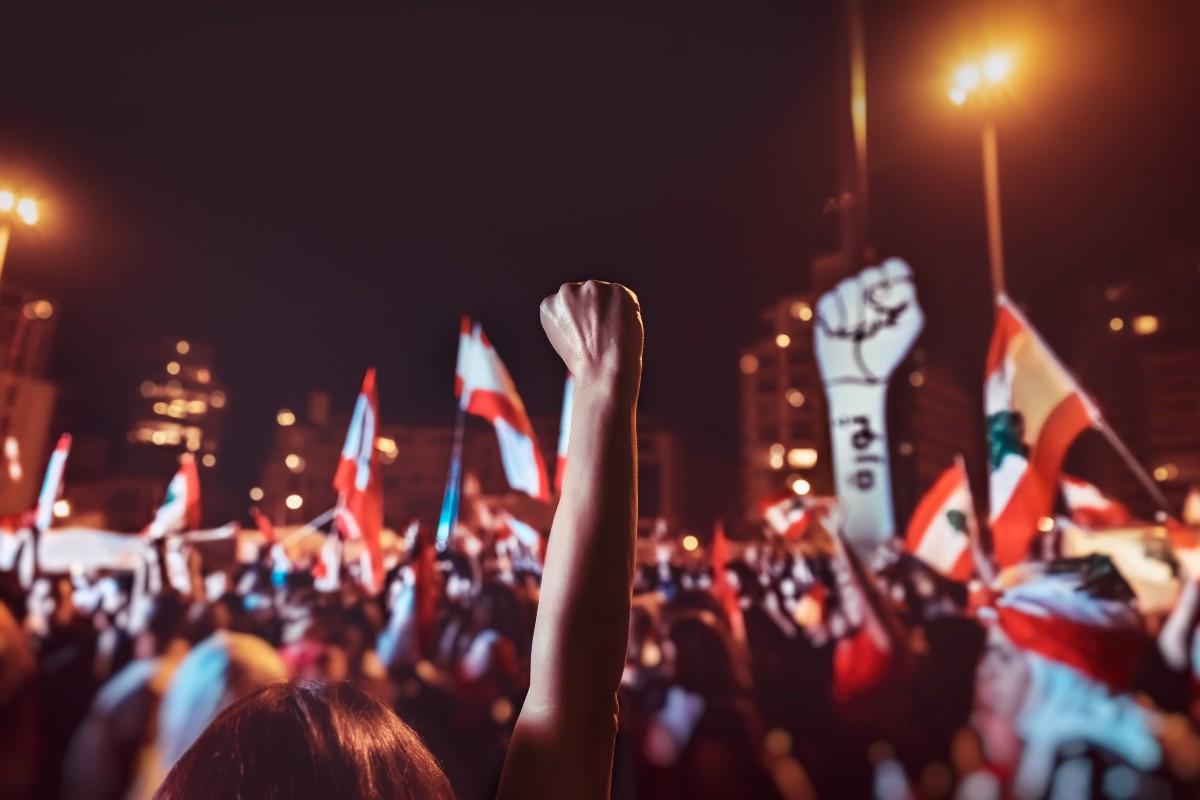Resilience and Inclusive Politics in the MENA Region

The Institute for Social Justice and Conflict Resolution (ISJCR) in LAU’s School of Arts and Sciences has received a generous grant from Carnegie Corporation New York for a research project on resilience and inclusive governance in the Middle East. The project is in collaboration with LAU New York Headquarters and Academic Center (LAU NY) and the Arab Institute for Women (AiW).
Setting the Context
In a context of overlapping crises marked by COVID-19 and economic breakdowns, how can MENA states craft forms of governance that privilege citizen wellbeing? And how to foster grassroots resilience and socio-economic as well as political inclusiveness in the context of authoritarian counterrevolutions, growing class disparities, and collapsed social contracts?
Research shows that the struggles dotting the MENA landscape are closely related to weaponization of identity politics by regimes, elites, or non-state actors, unresponsive governance, declining levels of trust between governments and citizens, and authoritarian return or maintenance in the context of collapsing post-independence social contracts. Often these struggles are played out through the lives of ordinary citizens, who continue to bear the brunt of the region’s conflicts and economic insecurities.
This project seeks to problematize and interrogate the concept of resilience—commonly understood as the ability of societies and individuals to manage shocks, develop “sustainable robustness” and successfully adapt to crises and threats—and to investigate the relational dynamics between resilience and inclusive politics.
Much literature has already been written on resilient societies, states, and individuals in the MENA region. Often, however, policy-orientated approaches to “instilling” resilience have been mainly inspired by external actors, and international organizations. The adoption of such approaches without critical contextualization has been criticized. Also, these approaches overlook the polysemous dimensions of resiliency and its implications for governance. Often, international policy actors laud seemingly resilient MENA societies, confusing the resilience of the state with the resilience of the political regimes, governing elite, and armed non-state actors.
Project Objectives
Against this backdrop, the project seeks to accomplish four objectives:
- First, it shifts the gaze from an understanding of elite-driven politics in the MENA landscape to an assessment of the costs of political economic crises, violent conflicts, states’ inability to provide services, and chronic forms of marginalization embedded in political systems on everyday citizens;
- Second, it embeds the concept of resilience in strands of literature related to community building and inclusive politics. In other words, the project posits that governance can only be robust when individuals partake in and shape the decisions that govern them;
- Third, the project seeks to interrogate the notion of resilience and unpack its components: When we speak about resilience and resilient governance, what and whose resilience are we referring to? Are we referring to the state apparatus and its machinery of control, to the proliferation of non-state actors that can operate in isolation from the state, or to the levels of trust that exist between the government and its citizenry or to citizen wellbeing and ability to withstand adversity? And how do all these components interact and build on each other?
- Fourth, this project will help produce multi-stakeholder knowledge on how resilience in the MENA region is perceived and lived by scholars, activists, artists, teachers and health specialists from the region itself.
The project will focus on two sets of cases: the primary cases of Lebanon, Iraq and Jordan and the secondary cases of Yemen and Libya. These cases are different enough to give a variety of perspectives on challenges to resilience and inclusive politics that the MENA region is struggling with. Comparative perspectives from Egypt, Syria, or other Arab states may also be considered. We will also partner with local, regional, and international practitioners who work in and on these countries and who can generate empirical findings grounded in field research. Additionally, the project will engage with various stakeholders with a view to producing local knowledge, practice-based methodologies, and contextualized understandings of the interdependencies between resilient societies and inclusive governance.
The project also aims to establish a sustainable dialogue between regional and international stakeholders and to engage diverse stakeholders in the MENA, Europe, the USA and further afield. Conferences, workshops, online commentaries, op-eds, and policy briefs problematizing the meanings of (societal, state/regime, non-state actors and individual) resilience will help produce knowledge around the concept as well as unpack its various nuances amid overlapping crises. Deliberative methods allowing various stakeholders to discuss, and process complex issues will be adopted.
Online Commentaries
- Dr. Steven Heydemann - Solidarity and Social Resilience: Mitigating Economic Precarity in MENA
- Dr. Steven Heydemann - التضامن والمرونة الاجتماعية:الحدّ من التراجع الاقتصادي في منطقة الشرق الأوسط وشمال إفريقيا
- Dr. Elspeth Guild - Resilience and Human Rights- Examining the Case of MENA Migration
- Dr. Katharina Lenner and Dr. Lewis Turner - Governing Displacement in the Middle East
- Dr. Ibrahim Halawi - Elite Resilience in Lebanon at a Time of Deep Crises
- Dr. Ibrahim Halawi - صمود النخبة في لبنان برغم الأزمات العميقة
- Dr. Stacey Yadav - Civil Action Under Uncivil Conditions in Yemen
- Dr. Stacey Yadav - النشاط المدني في ظروف غير مدنية في اليمن
- Dr. Morten Valbjorn - Three Ways of Countering Sectarianism – Challenges and Dilemmas
- Dr. Lama Mourad - Finding Resilience’s Roots in Exclusion and Extraction